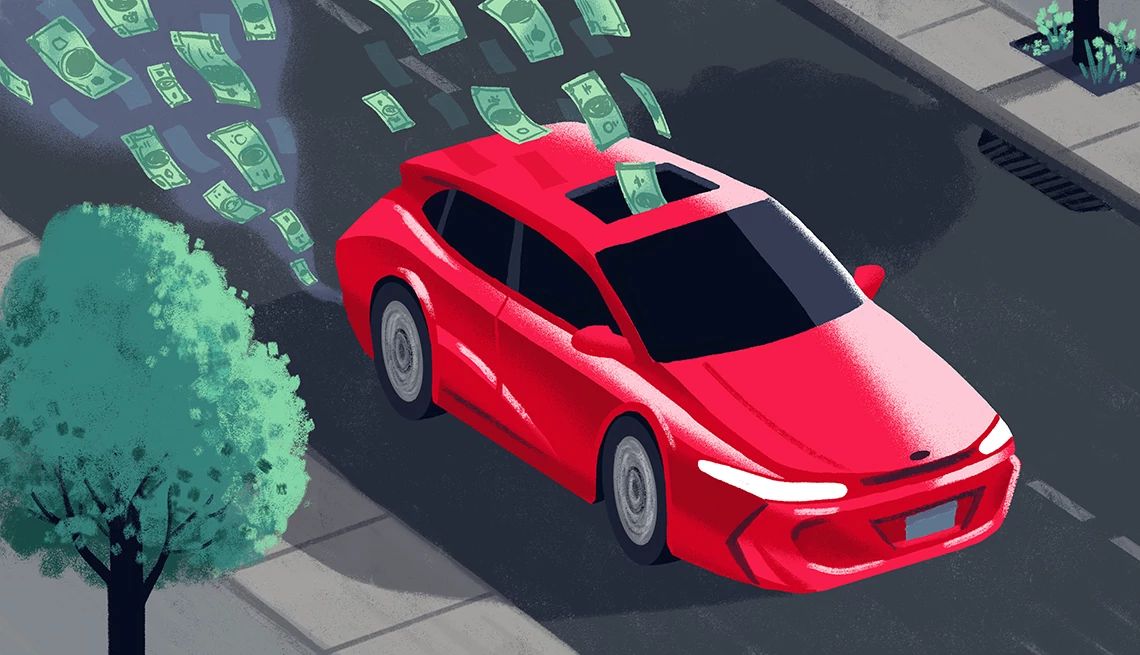
- Select a language for the TTS:
- UK English Female
- UK English Male
- US English Female
- US English Male
- Australian Female
- Australian Male
- Language selected: (auto detect) - EN
Play all audios:
However, even if you stay within the rules of the road, you may get tagged to pay higher rates. _The New York Times _has reported that insurers have been penalizing drivers not only for
violations of traffic laws but also for their recorded regular driving habits — legal or not. As cars have become rolling computers and listening posts, automakers have increasingly been
recording the status of those cars, including their location and speed. That data can include recording driving behavior such as jackrabbit starts and hard braking — information car
companies such as GM have been collecting and selling to outside companies like LexisNexis, according to _The New York Times_. In turn, LexisNexis sells the information to auto insurers,
which use the data to set rates for individual consumers. Since publication of the _Times_ story, GM says it has changed its policy and will no longer share driving behavior details with
other companies. However, if you tend to be a jaunty driver and own a late-model car from another manufacturer, your insurer may be using your driving habits against you. Car companies tend
to conceal such information in voluminous user agreements most of us sign without reading, but owners can generally opt out of such tracking. If you want to do so, make sure you do not sign
up for any driving improvement or monitoring program, or even use the automaker’s smartphone apps, which may require that you allow them to track you. WILL A CAR WITH MORE SAFETY TECH
MEAN LOWER INSURANCE? The tracking data that some manufacturers monitor is made possible thanks to the technology and communications equipment in the latest vehicles. Some of that same
technology can make your car safer and help avoid accidents, such as automatic emergency braking and lane-keeping assistance. So if you buy a car with such advanced safety features, will the
insurance company cut you a break? Probably not. Insurers have been notoriously slow to recognize the value of the latest advanced driver assistance safety systems. Progressive and Bankrate
both claim that the inclusion of safety features can lower your insurance. But this claim is based on the fact that insurers use Insurance Institute for Highway Safety ratings to determine
the relative safety of particular cars. In assessing safety, the institute now includes collision avoidance and mitigation technologies, such as automatic emergency braking, in its
rankings. However, don’t expect insurance companies to give you a specific price break just because your new car has a video rearview mirror that eliminates blind spots or lane-centering
assist. DO CAR MODEL OPTIONS MAKE A DIFFERENCE? The options package or, in automotive argot, trim level you select will affect what you pay in car insurance. That means extras like
brand-name sound systems, leather seats, Bluetooth and internet connectivity, and powered moonroofs can raise your premiums. A base model without such features will probably be less
expensive to insure. Similarly, the body style of your vehicle can affect your premiums, according to Bankrate. Four-door sedans, for example, are associated with more conservative drivers.
Sporty coupes are associated with more risky driving behavior — even if it isn’t a Corvette or Porsche. ANYTHING ELSE? Other factors can affect your insurance rates, including whether
you are married (usually less if you are married, according to Bankrate) and the number of claims you’ve made in the past (more claims generally mean higher insurance). On the positive
side, California, Hawaii, Massachusetts and Michigan no longer allow insurance companies to use two important factors against you: your gender and your credit history. Thank goodness for
small mercies.